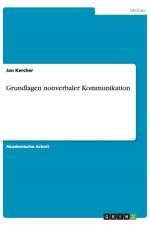von Jan Kercher
17,95 €
Seminar paper from the year 2004 in the subject Sociology - Individual, Groups, Society, grade: 89%, University of British Columbia (Department of Anthropology and Sociology), course: Community Studies, language: English, abstract: ¿And me, I still believe in paradise. But now at least I know it¿s not some place you can look for, cause it¿s not where you go. It¿s how you feel for a moment in your life when yoüre a part of something, and if you find that moment... it lasts forever...¿ says Leonardo di Caprio at the end of the movie ¿The Beach¿, upon return from a failed utopian island community. This statement, together with the whole movie, expresses a widespread conviction: utopian communities are bound to fail. ¿Paradise¿ is nothing that one can realize in an actual community. If anything, it can be realized as a feeling or a state of mind; but why do we think that way? Do we all feel that there is a sociological law that inevitably leads to the demise of a community that tries to realize the ideal society? Is this point of view empirically provable? These were the questions that intrigued me when I decided to make utopian communities my research topic; or, formulated into a single research question: Is there a single, most important feature or process that led to the demise or survival of former utopian communities?To answer this question, we should first have a brief look at the great field of studies about the various kinds of utopias. This will help us achieve a better understanding and localization of the aspect of utopia we are looking at in this paper (utopian communities). At the same time, it will help us to find a useful definition of the vague and ambiguous term ¿utopiä and, more specifically, ¿utopian communities¿. Subsequently, we will also have a brief look at the history of those communal experiments. After these prefatory remarks, I will introduce Rosabeth Moss Kanter¿s concept of utopian commitment as a conceptual framework for the exploration of the longevity of utopian communities. Kanter¿s functional concept is one of the few analytical models in this field. However, its functional approach is not unproblematic. Therefore a brief evaluation of its strengths and weaknesses seems necessary. Finally, I will use Kanter¿s concept to analyse the developments of a failed utopian community (the Finnish colony of Sointula), which contrasts with a more successful community (the Shaker sect) and, thus, serves to test the concept¿s validity.











